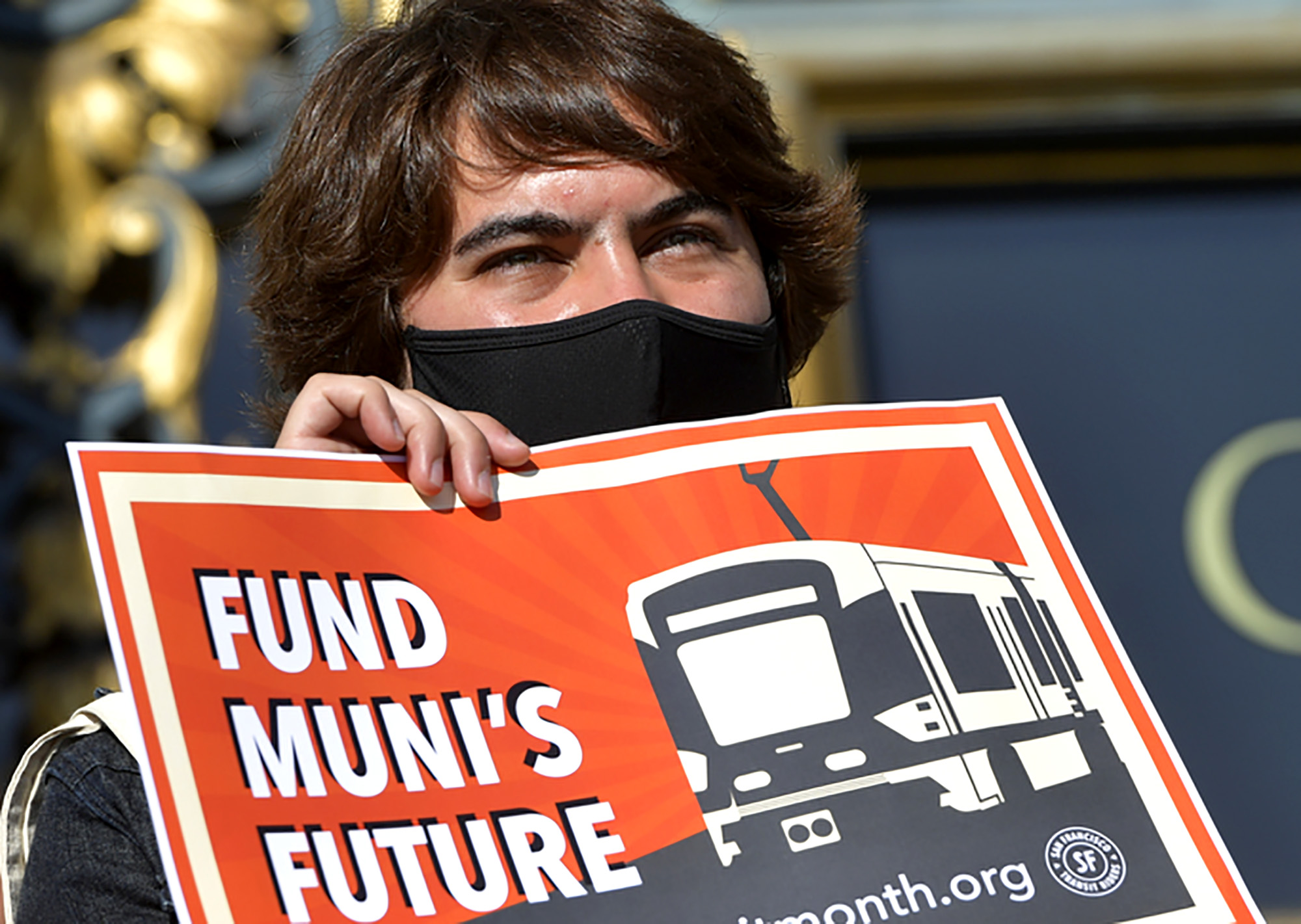While the state legislature and Gov. Gavin Newsom agree on a state budget that includes operational money for public transit operators, San Francisco transit officials say the money is not enough to fill the unprecedented gap between revenue and expenses.
Bree Mawhorter, the San Francisco Municipal Transportation Agency’s chief financial officer, updated city supervisors on the transit agency’s budget at Tuesday’s county transportation authority board meeting. The SFMTA has projected a $101 million budget deficit in the 2024-2025 fiscal year and has been advocating, along with other Bay Area transit agencies, for the state legislature to step in to provide money for operations in the short term.
The agreed-upon interim state budget, which Newsom signed on a BART train with Assemblymember Phil Ting, includes restoring $2 billion in transit capital funds that Newsom had originally cut from his initial budget proposal, and adds $1.1 billion for transit operations. There’s also some flexibility to use capital funds for transit operations.
With this budget, we’re investing $5.1 billion in public transit—so services like @SFBART can better serve Californians now and in years to come.
— California Governor (@CAgovernor) June 28, 2023
We're increasing our budget reserves to record levels while preserving historic investments together with the Legislature. pic.twitter.com/abcGpqhLpG
A coalition of 15 transit agencies and the California Transit Association had asked for just over $5 billion over five years.
Mawhorter said:
“We’re very grateful for the support that we’ve gotten from the state, but we know that we still have a long way to go.”
Tweet this!
She added that she anticipates the state money would only cover a third of the budget deficit, which would leave the SFMTA with a $60 million budget shortfall in 2024-2025 fiscal year.
State Sen. Scott Wiener, who took the lead in advocating for the state to provide money for transit operations, said the Bay Area region expects to receive about $400 million of the $1.1 billion over the next three years.
Mawhorter said the money will be distributed through the Metropolitan Transportation Commission and added that she still does not have an exact amount on how much money the SFMTA will receive. The money will also have to be split among other struggling Bay Area transit agencies who have seen declines in ridership caused by the Covid-19 pandemic.
Without any help from the state, many transit systems, including Muni and BART, were at risk of severe service cuts. SFMTA officials have repeatedly stated that the budget gap equated to cutting dozens of Muni bus routes. BART officials said service could be decimated with no weekend service, station closures and longer wait times.
Given the recent news of the budget, Preston asked Mawhorter if the previously proposed possible service cuts this summer by SFMTA Director of Transportation Jeffrey Tumlin would not take place this year. Mawhorter said that was correct.
While there are no planned service cuts for this calendar year, the SFMTA has postponed its service restoration plan and will only make cost-neutral service adjustments in addressing crowding on Muni routes. The SFMTA has also proposed extending parking meter hours at night and Sundays in effort to generate revenue, but that proposal has not sat well with supervisors.
In an effort to provide transit agencies with more money, Wiener on Monday announced a proposal to temporarily increase the bridge tolls on the state-owned seven bridges by $1.50 over the next five years. The additional revenue is expected to generate approximately $180 million annually over the five-year period. The toll increase would start next year and last through the end of 2028.
In a statement, Wiener said that public transit is still under threat and that the state budget only partially addresses the operational budget deficits of transit agencies, adding:
“SB 532 provides critical lifeline funding for our transit systems — ensuring they have the resources they need to provide safe, reliable service for our residents.”
Tweet this!

Jerold serves as a reporter and San Francisco Bureau Chief for SFBay covering transportation and occasionally City Hall and the Mayor's Office in San Francisco. His work on transportation has been recognized by the San Francisco Press Club. Born and raised in San Francisco, he graduated from San Francisco State University with a degree in journalism. Jerold previously wrote for the San Francisco Public Press, a nonprofit, noncommercial news organization. When not reporting, you can find Jerold taking Muni to check out new places to eat in the city.
